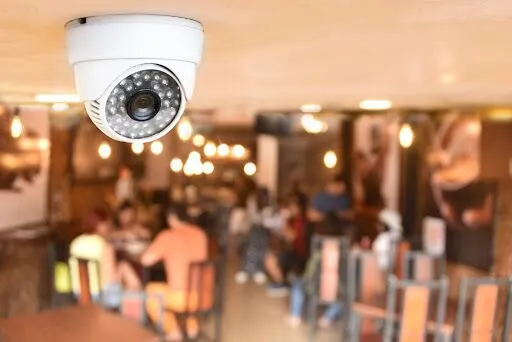As Agra’s culinary scene flourishes, restaurants are increasingly becoming prime targets for cyberattacks. With sensitive customer data, payment information, and operational details at stake, ensuring robust IT security is essential for maintaining customer trust and business integrity. However, many Agra-based restaurants might feel that implementing effective IT security measures is financially out of reach. This blog explores affordable IT security services that can help restaurants safeguard their operations without breaking the bank.

1. Understanding the Importance of IT Security
Before diving into affordable solutions, it’s crucial to understand why IT security is vital for restaurants:
- Data Protection: Restaurants handle sensitive customer data, including payment information and personal details. A security breach can lead to significant financial loss and damage to reputation.
- Operational Continuity: Cyberattacks can disrupt operations, leading to downtime and loss of revenue.
- Customer Trust: Demonstrating a commitment to data security builds trust with customers, encouraging repeat business and positive reviews.
2. Affordable IT Security Solutions for Restaurants
1. Basic Cybersecurity Training for Staff
Educating employees about cybersecurity is one of the most cost-effective ways to enhance IT security. Many breaches occur due to human error, such as falling for phishing scams or using weak passwords.
- Workshops and Online Courses: Invest in workshops or online courses that teach staff about recognizing phishing emails, creating strong passwords, and protecting sensitive data.
- Regular Refreshers: Conduct regular training sessions to keep security practices top of mind.
2. Antivirus and Anti-Malware Software
Installing reliable antivirus and anti-malware software is crucial for protecting restaurant systems from malicious attacks. Fortunately, many affordable options provide robust protection.
- Affordable Software Options: Brands like Bitdefender, Avast, and Kaspersky offer comprehensive plans at reasonable prices, ensuring that restaurant systems remain secure from threats.
- Regular Updates: Ensure that antivirus software is updated regularly to protect against the latest threats.
3. Firewalls
A firewall acts as a barrier between a restaurant’s internal network and external threats. Implementing a firewall is an effective way to safeguard sensitive information.
- Network Firewalls: Many routers come with built-in firewall capabilities that can be activated at no additional cost. These provide a first line of defense against cyberattacks.
- Host-Based Firewalls: Consider implementing host-based firewalls on individual computers to add an extra layer of protection.
4. Secure Payment Processing Solutions
Restaurants rely heavily on payment processing systems, making them a key target for cybercriminals. Ensuring that these systems are secure is paramount.
- PCI Compliance: Use payment processors that are PCI compliant to ensure that customer payment data is handled securely. Research affordable payment processing options that prioritize security.
- End-to-End Encryption: Opt for payment systems that offer end-to-end encryption, protecting customer payment information from being intercepted.
5. Regular Software Updates and Patch Management
Keeping software up to date is essential for protecting against vulnerabilities. Many cyberattacks exploit outdated software.
- Automated Updates: Enable automatic updates for operating systems and applications to ensure that security patches are applied promptly.
- Manual Checks: Schedule regular manual checks to ensure that all software is current, especially for critical systems such as POS (Point of Sale) systems.
6. Data Backup Solutions
Data loss can occur due to cyberattacks, hardware failures, or natural disasters. Implementing affordable data backup solutions can help restaurants recover quickly.
- Cloud Storage: Utilize cloud-based storage solutions like Google Drive or Dropbox to back up important data securely and affordably.
- Regular Backups: Schedule regular data backups to ensure that the most recent information is always preserved.
7. Incident Response Plan
Having a clear incident response plan can significantly minimize the impact of a security breach. This plan should outline steps to take in case of a cyberattack.
- Developing a Plan: Work with IT professionals to create a detailed incident response plan tailored to the restaurant’s specific needs.
- Training Staff: Ensure that all employees are familiar with the plan and know their roles in the event of a cyber incident.
3. Choosing the Right IT Security Partner
While many of these solutions can be implemented in-house, working with an affordable IT security provider can provide additional expertise and peace of mind.
- Local IT Support Companies: Look for local IT support companies in Agra that offer tailored packages for restaurants, providing cost-effective solutions without compromising on quality.
- Managed Security Services: Consider managed security service providers (MSSPs) that can monitor systems for threats and provide regular security assessments at a reasonable cost.
Conclusion
For Agra-based restaurants, investing in affordable IT security services is essential for protecting sensitive data, maintaining operational continuity, and building customer trust. By implementing basic cybersecurity training, antivirus solutions, firewalls, secure payment processing, regular software updates, data backup solutions, and incident response plans, restaurants can significantly enhance their security posture without overwhelming their budgets.


No responses yet